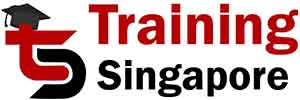This R programming course in Singapore forms an ideal package for aspiring data analysts aspiring to build a successful career in analytics/data science.

Data Science With R Course Curriculum
This R programming course in Singapore forms an ideal package for aspiring data analysts aspiring to build a successful career in analytics/data science.
By the end of this training, participants will acquire a 360-degree overview of business analytics and R by mastering concepts like data exploration, data visualization, predictive analytics, etc
Introduction to Data Science Methologies
Data Types
Introduction to Data Science Tools
Statistics
Approach to Business Problems
An overview of Analytics
Models and Algorithms
Importance of Data Science
Data Science as a Strategic Asset
R, Python, WEKA, RapidMiner
Overview Of R
Introduction to R
Data Structures and Manipulation in R
Installing R on Various Operating Systems
IDEs for R
Steps in R Initiation
Installing an R Package
Overview Of Business Analytics
Introduction to Business Analytics
Analytics Technology and Resources
Need of Business Analytics
Types and Features of Business Analytics
Descriptive and Predictive Analytics
Business Decisions
Analytical Tools
Data Science as a Strategic Asset
Data Visualization And Manipulation
Introduction
Types of Graphics
Save Graphics to a File
Graphics in R
Create a word cloud
Exporting Graphs in EStudio
Hypothesis Testing
Need of Hypothesis Testing in Businesses
Chances of Errors in Sampling
Level of Significance
Types of Statistical Hypothesis Tests
Test Statistic
Types of Errors
Use Normal and Student Probability Distribution Functions
Objectives of Null Hypothesis Test
Use Chi-Squared Test Statistics
Logistic Regression Analysis
Introduction to Regression Analysis and Usage
Types of Regression Analysis
Interaction Regression Model
Correlation
Logit Function
Lift charts
Decile Analysis
Cluster Analysis Classification Models
Introduction to Cluster Techniques
Examples of Classification
Classification Process – Model Construction
Data Preparation Issues
Basic Algorithm for a Decision Tree
Decision Trees in Data Mining
Naive Bayes Classifier
Clustering Models
Use Cases of Clustering
DBSCAN Clustering Algorithm
Distance Methodologies
Hierarchical and Non-Hierarchical Procedure
K-Means clustering
We have worked with fortune 500 companies and we released that every employee need some training to enhance their skills on time to time. That’s why, we offer customised corporate training for your staff.
You tell us what you’re looking for, and we put together a program designed especially for you. We ensure that every moment of your valuable schedule is used as effectively and efficiently as possible.
The last thing we want to do is waste your time by trudging over old ground or repeating already familiar lessons. We’re here to extend and challenge your employees and to give your company the tools to achieve the best outcomes possible.
Our Training Scope is Wide
We provide corporate training in the areas that are crucial to running a successful business in today’s intensely competitive market.
Our technology programs offer the opportunity for our clients to advance their knowledge of the world’s most commonly used software programs. We teach all aspects of Microsoft office, IT and Project Management Courses including
© 2025 coursetakers.com All Rights Reserved. Terms and Conditions of use | Privacy Policy